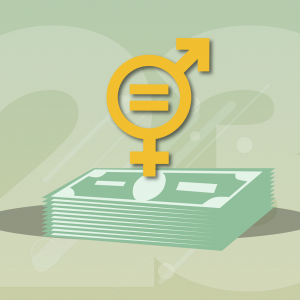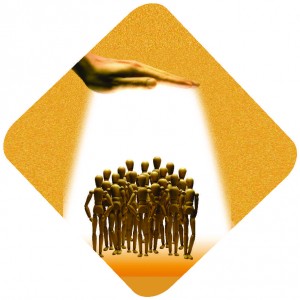Social Justice
World Day of Social Justice 2020
In recent years, the term “social justice” has become as prominent as “human rights”. Social justice is an underlying principle for peaceful and prosperous coexistence within and among nations. It is the equal access to wealth, opportunities and privileges within a society.
We uphold the principles of social justice when we promote gender equality or the rights of indigenous peoples and migrants. We advance social justice when we remove barriers that people face because of gender, age, race, ethnicity, religion, culture or disability.
What is Social Justice?
Social justice is a political and philosophical theory which asserts that there are dimensions to the concept of justice beyond those embodied in the principles of civil or criminal law, economic supply and demand, or traditional moral frameworks. Social justice tends to focus more on just relations between groups within society as opposed to the justice of individual conduct or justice for individuals.
Historically and in theory, the idea of social justice is that all people should have equal access to wealth, health, well-being, justice, privileges and opportunities regardless of their legal, political, economic or other circumstances. In modern practice, social justice revolves around favouring or punishing different groups of the population, regardless of any given individual’s choices or actions, based on value judgements regarding historical events, current conditions and group relations.
History
Social justice as a concept arose in the early 19th century during the Industrial Revolution and subsequent civil revolutions throughout Europe, which aimed to create more egalitarian societies and remedy capitalistic exploitation of human labour. Because of the stark stratifications between wealthy and the poor during this time, early social justice advocates focussed primarily on capital, property and the distribution of wealth.
By the mid-20th century, social justice had expanded from being primarily concerned with economics to include other spheres of social life to include the environment, race, gender and other causes and manifestations of inequality. Concurrently, the measure of social justice expanded from being measured and enacted only by the nation-state (or government) to include a universal human dimension. For example, governments (still today) measure income inequality among people who share citizenship in common. But social justice can also be considered at the level of humanity as a whole. As the United Nations states: “Slaves, exploited workers and oppressed women are above all victimized human beings whose location matters less than their circumstances.”
Examples
Examples of social justice can be found throughout all types of societies, government policies and movements.
In socialist economies, social justice forms a foundational principle of economic policy. Socialist governments commonly carry out vast programmes of forced redistribution of land, capital and other assets, such as the Great Leap Forward and the Holodomor, in the name of social justice.
In capitalistic societies, governments regularly intervene in the economy in support of social justice. Social justice advocates often push for policy reform in areas such as healthcare, immigration and the criminal justice system to remedy potential biases toward certain demographic groups.
Islamic Concept
Islam, being religion of nature, understands that human beings are born with varying gifts. As they differ in their bodies and their features, so they differ in their mental and other capabilities. Their environments, their circumstances and their hereditary gains also differ. In this situation, there can be no possibility of economic equality. Thus the existence of economic inequalities among the human beings is but natural. It is also there because Islam allows individual initiative in earning wealth and gives right of private ownership of property. Moreover, existence of inequalities in economic and social life is a part of Divine scheme whereby God tests and tries the people to know who are good and who are bad. To this fact, the Holy Quran refers when it says:
- He it is who has placed you as viceroys of the earth and has exalted some of you in rank above others, that He may try you by (the test of) that which He had given you……… -(6 : 165)
- And Allah has favoured some of you above others in provision……… -(16 : 71)
- ……… We have apportioned among them their livelihood in the life of the world, and raised some of them above others in rank that some of them may take labour from others……. -(43 : 32)
However, despite recognising inequalities as natural and part of Divine world order, Islam permits differences in wealth within reasonable limits only. It does not tolerate that these differences should grow so wide that some people live their life in absolute luxury while millions are left to lead a life of abject poverty and misery. It does not allow economic disparities turn into an extreme position wherein millions of have-nots’ become serfs and slaves in the hands of few ‘haves’ of the society. In other words, we can say that Islam does not believe in equal distribution of economic resources and wealth among the people rather it believes in equitable, just and fair distribution. It bridges the gulf between the rich and the poor by taking very effective measures to modify the distribution of wealth in favour of the poor.
Islam, on the one hand, ensures just and equitable distribution of wealth among the people and, on the other, provides social security to the poor and the destitute in the form of basic necessities of life. Besides that, Islam also protects the weak from the economic exploitation by the strong. All there are various aspects and manifestations of what is called Islamic social justice.
Thus social justice (which is also referred to as economic justice or distributive justice) according to Islamic conception includes three things, namely : (1) fair and equitable distribution of wealth, (2) provision of basic necessities of life to the poor and the needy, and (3) protection of the weak against economic exploitation by the strong.
Economic Growth & Social Justice
Social justice is all about empowering people with equal opportunities and ensuring merit in the society instead of limiting opportunities of growth to a particular class, race or religion.
Economic growth is also closely linked to fair and equitable treatment with every citizen in a country and employees in an enterprise. Our rulers are well-aware of this reality but usually they are not prepared to fight for social justice.
It is politically risky in the short-term and is against the norms of culture they are attuned to. Our constitution is based on principles of social justice but the punitive laws are applied on powerless, while the influential are allowed to break them with impunity. This is impeding our growth in a myriad of ways.
Social justice and economic growth go hand in hand and being mutually, inclusive one cannot happen without the other. All those enterprises are growing above normal pace that provide equal opportunities to their workers. They recruit their human resource on pure merit and ensure the best ones move up on the basis of performance and commitment towards the enterprise.
The criterion is to reward the competent and weed out the incompetent irrespective of their connections. Workers at all level are free to suggest ways for improvement in processes that enhance efficiency and reduce wastage.
This engagement with the workers becomes a learning process as those suggestions are considered and if rejected reasons a given to the suggesters. This enhances their learning about the way the company operates. No one makes fun of illogical suggestions made out of ignorance by the worker.
This process creates cohesion among the workers and the sponsors of the company. The company continues to outpace it rivals in growth and efficiency. The meal menu in socially compliant companies is the same for all employees including the chief executive and served in the same room.
There are quite a few enterprises, small and large, which are equal opportunity employers and are scaling up regularly. But generally speaking majority of the enterprises are neither equal opportunity employers nor socially compliant. This is one of the reasons that shorten the life of many or our commercial enterprises.
The public sector companies provide better facilities to their employees but are “exclusive opportunity employers”. The appointments are made either on political grounds or influence. There, promotions have got nothing to do with the merit. They consider facilities as their divine right without contributing towards the success of the enterprise. The performance of these companies is known to all.
No one should be excluded from the development process. Entrepreneurs should be respected and obeyed to maintain discipline; but the workers should also be treated respectfully. No enterprise can attain sustained growth without satisfied workers.
In the same way skills and craftsmanship would be useless if there is no enterprise to benefit from those skills. The system should be so fair that it eliminates incompetent entrepreneurs or workers.
Our thinking on social justice should refocus on work as this is the only way to take people above the poverty line and give them a chance to be a partner in the solution. This is social justice. The civil society will have to oppose social injustice as it is an inevitable feature of our society.
Social justice is in fact a realisation by the society that it is sensitive to the needs of others. All the members of the society should vow to share the resources available in the country with others. The government alone cannot address these issues and the civil society and the affluent should support fair reforms.
The entrepreneurs should realise they would rapidly scale up if they share a small portion of their income with the workers to ensure social compliance. A ten percent of the net income spent on workers welfare this year could result in 20 percent growth next year. Global as well as Pakistani evidence shows that in five years time, the net worth of the socially compliant entrepreneur would be much higher than the worth of its same-sized non-compliant competitor.
Conclusion
In the present unsettled times for democratic dispensations, governments the world over are failing this test by not adhering to three principles—and, sadly, drifting towards totalitarian tendencies and praetorian rule of law. Pakistan too finds itself caught in this dangerous drift, particularly accentuated in the last few years. The republic requires course correction, and here is why.
A state determines its national purpose, interests and objectives and makes policies, strategies and action plans accordingly. Our national purpose was delineated by Quaid-i-Azam Mohammad Ali Jinnah as a democratic and enlightened polity based upon the principle of social justice and thus pursuing our national objectives through peace, progress and prosperity. Unfortunately, we lost sight of this purpose and ended up becoming a security state at cross purposes with the democratic aspirations of a society that requires political, economic and social justice. Unless we humanise the state, the national security narrative will continue to dominate at the expense of human security and development.
The writer is a Lahore-based freelancer.
 Jahangir's World Times First Comprehensive Magazine for students/teachers of competitive exams and general readers as well.
Jahangir's World Times First Comprehensive Magazine for students/teachers of competitive exams and general readers as well.



